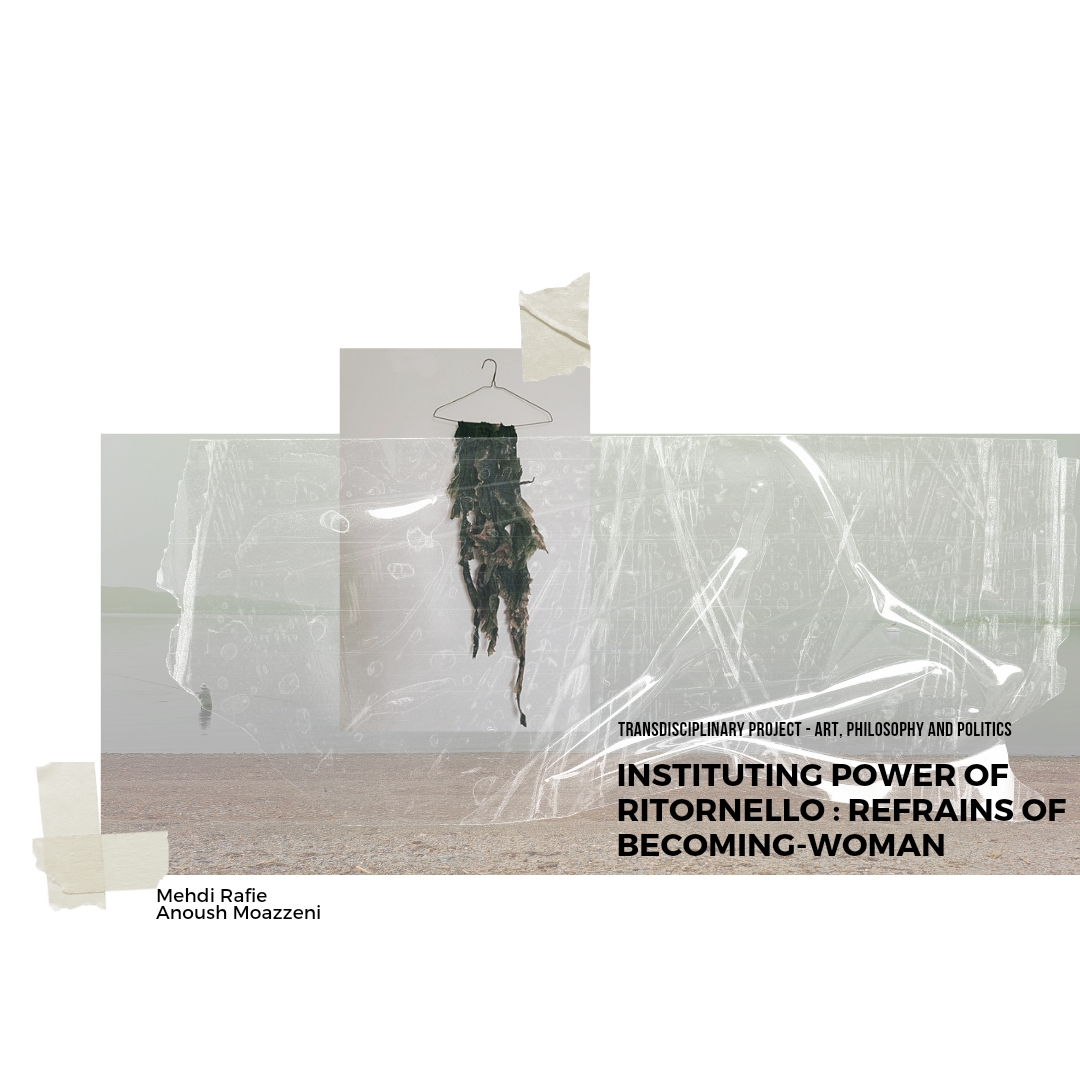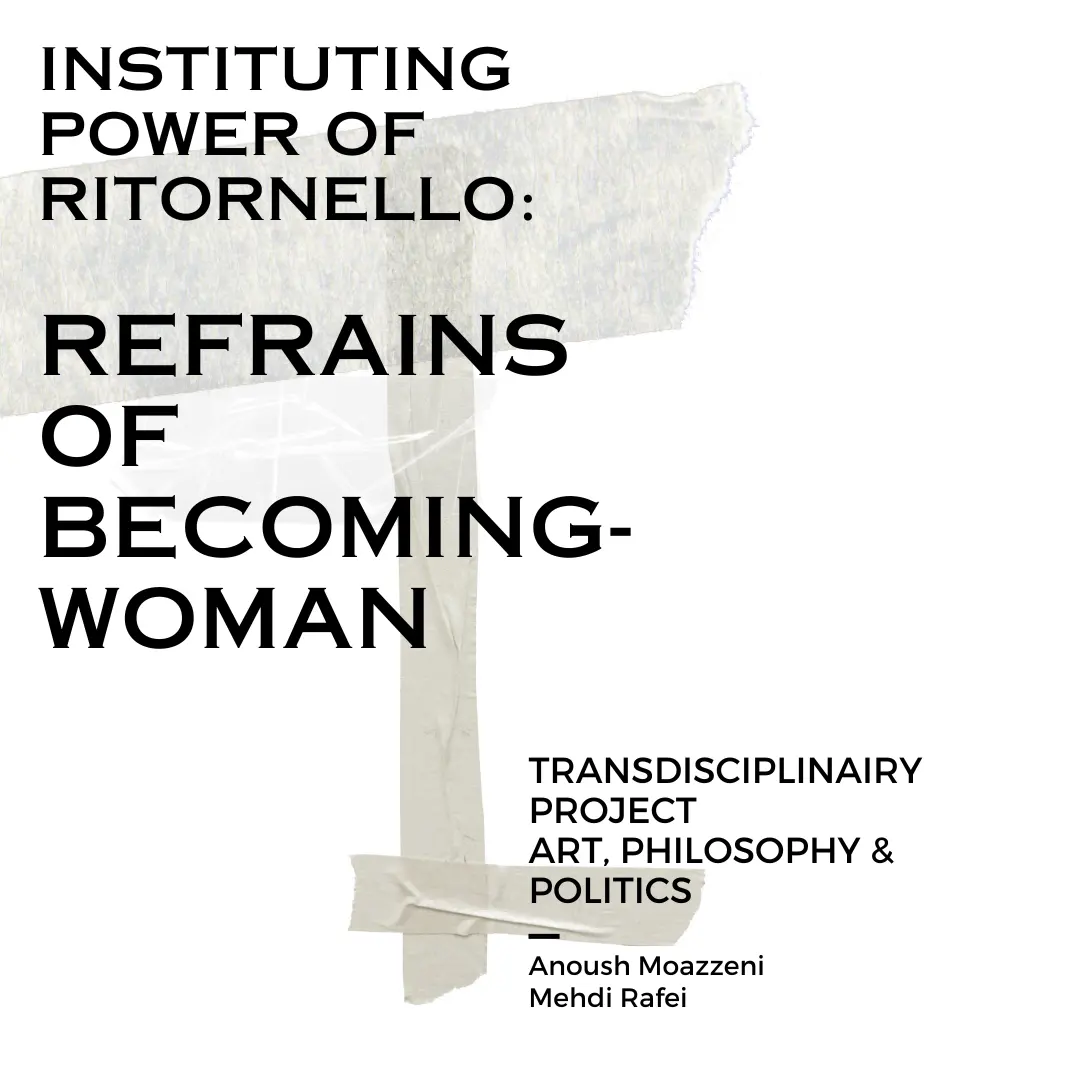

Research-Creation | Instituting Power of Ritornello: Refrains of Becoming-womman
Musical Interpretation:
Bahar Ferdowsi, Voice
Ghazaleh Zarei, Nay
Kaveh Mirhosseini, Conductor & Percussion
Sahel Saleh, Voice
Nazanin Ahmadzadeh, Oboe

Subjectivity sways where the major key falters, where a voice quivers between silence and song. Becoming-woman is not a state but a movement—slipping beneath, threading through, undoing the weight of form.To become-woman is to slip out of the great compositions of power, to move with the subterranean currents of an unheard melody, threading through the cracks of the dominant refrain. Like minor music, it reshapes the air, bending the dominant refrain into something trembling, something yet to come. A whispered note lingers too long, a rhythm drifts off course just enough to let another world seep through—here, another way of being emerges, fugitive and unclaimed. It is not about taking center stage but about slipping through its cracks, tuning the world to a different frequency, one that vibrates with all that has been held back, all that still insists on being heard.
p>
ABSTRACT
This project is comprised of a musical composition, a photo series and scholarly writing. Operating within a transversal or transdisciplinary framework that encompasses philosophy, art, and politics. we, as a “collective assemblage of enunciation”, explore thought processes, thought-feelings and technologies of refrain presented through blocs of sensation and philosophical concepts to develop micro-politics of rhythm. We expand this micro-politics of rhythm through Deleuzeʼs third synthesis of time and his conception of “disjunctive synthesis” as instituting agency of territory —referred to by Guattari as a "rupture in causality." Additionally, we delve into Becoming-woman as a refrain, inducing a rupture effect within the symbolic order of signs. Our methodology seeks to establish a connection between music and a new micro-politics of segmentarity in rhythm that ensures a deliberate separation from anterior "existential territories". Therefore, a macro-political interpretation of rhythms, characterized by symbolic repetition in Lacanian terms, provides the institution with a resonant and redundant "repetition of the same". In this way, the instituting power of refrains devotes itself to a "repetition mediated by difference," unable to reach a "difference in-itself," but rather remaining within the realms of politics concerning representation, identity, and resemblance. This static propels the institution or musical segment toward something akin to a "death drive," a concept Freud referred to as the "compulsion to repeat". Yet, the micro-politics of construction, or a-signifying semiotics, involves a vital energy of “difference in-itself” and can transform “repetition in-itself” of refrain to a “repetition for-itself” through its “eternal return” (retour éternel or ritournelle). This shift in lines turns the notion of the "death drive" into a Thanatos unveiled in the third synthesis of time, as elucidated by Deleuze in Difference and Repetition. The instituting power of the Outside manifests in the micro-politics of the ritornello.
<